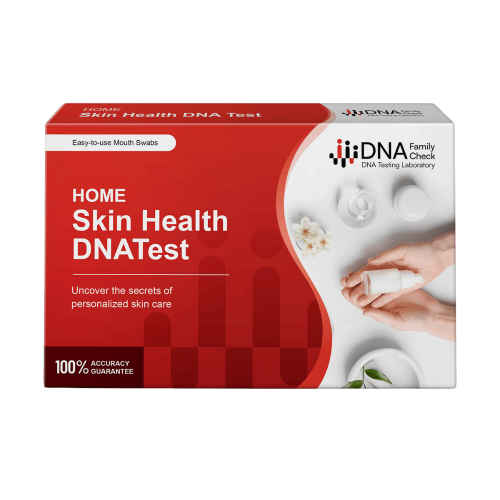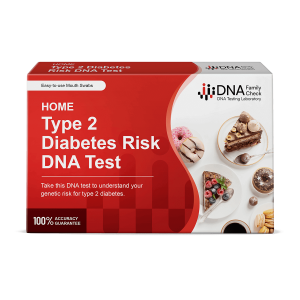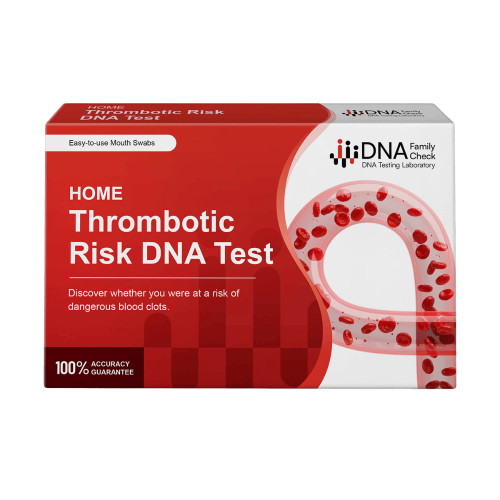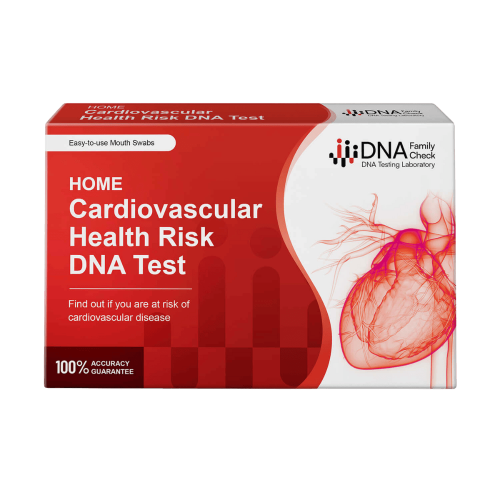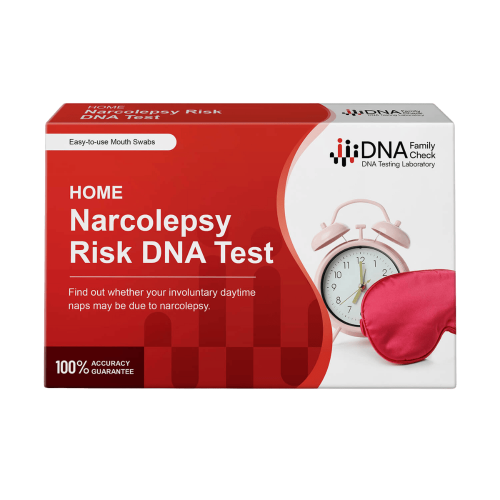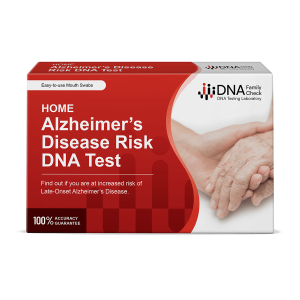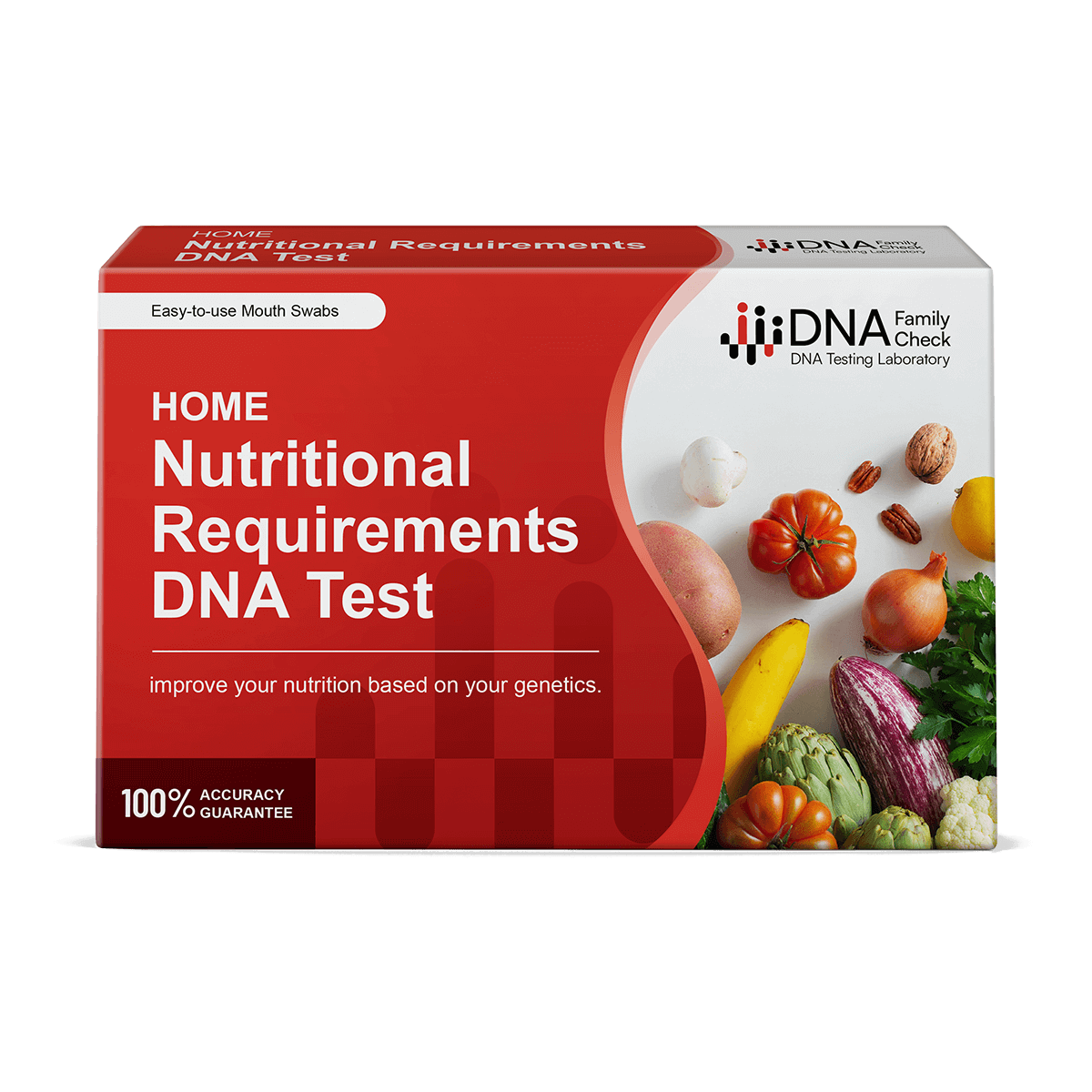

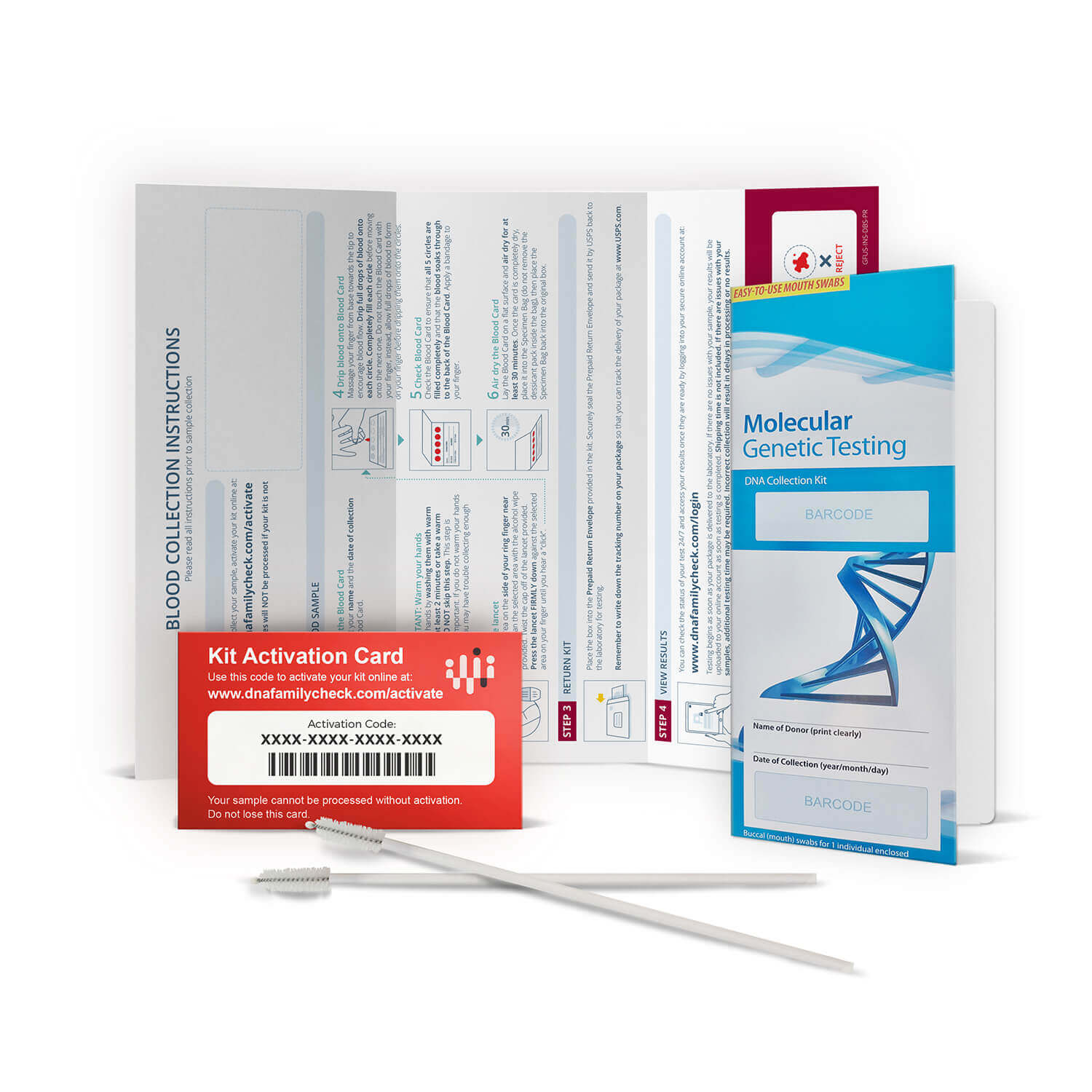
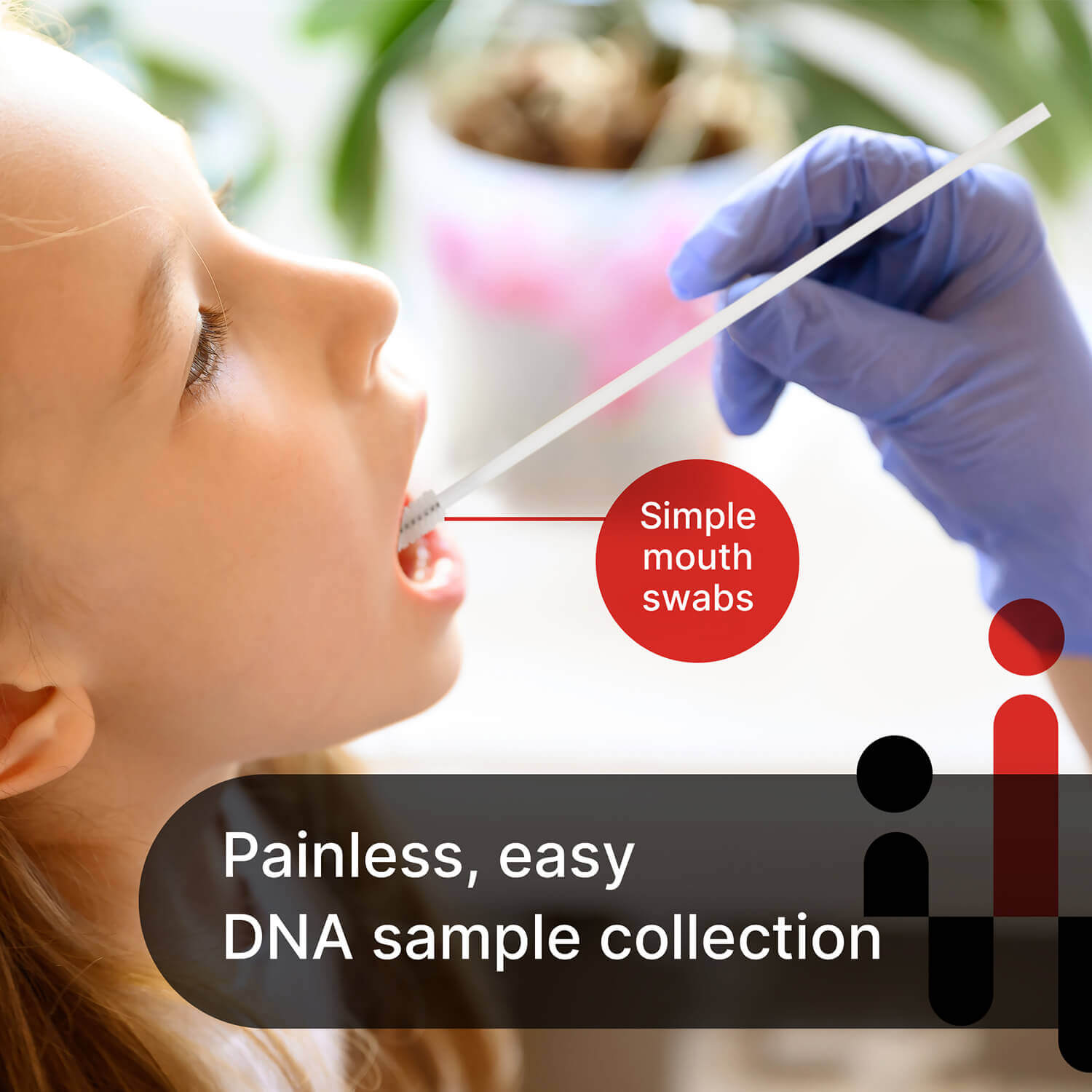
Nutritional Requirements DNA Test
$249.00
Personalized nutrition, powered by your genes. Identify potential vitamin and mineral deficiencies and optimize your diet for optimal health and well-being.
- Identify genetic predispositions to nutrient deficiencies
- Includes vitamins A, B6, B12, C, D, E, Folate, Iron, and Omega-3
- Improve your diet based on your unique genetic makeup
Summary
Introduction to Genetic Influence on Nutrition
Your genetic makeup plays an important role in determining how your body absorbs and processes various essential nutrients. The Nutritional Requirements DNA Test analyzes several key genes involved in the metabolism of vitamins and minerals, helping to identify specific dietary needs that may be influenced by genetic variations. By understanding these genetic factors, you can better tailor your diet to meet your unique nutritional requirements.
The Nutritional Requirements DNA Test
This test involves a simple cheek swab to collect a DNA sample, which is analyzed to determine whether you carry any of the specific variants in the genes listed below. The results provide personalized insights into your potential nutritional needs, allowing you to make informed dietary choices or consider supplementation where necessary.
Key Genes Analyzed in the Test
This test focuses on the following genes and their specific variants:
BCO1 (rs12934922, rs7501331, rs11645428, rs6564851): The BCO1 gene is involved in converting beta-carotene (found in plant-based foods) into active vitamin A. Variants in this gene can reduce the efficiency of this conversion, potentially increasing your need for preformed vitamin A (from animal sources) to meet your body’s requirements for eye health, immune function, and skin maintenance.
NBPF3 (rs4654748): This gene affects how vitamin B6 is cleared from the body. Individuals with certain variants in NBPF3 may experience faster clearance of vitamin B6, necessitating a higher intake of this vitamin to support brain function and energy metabolism.
MTHFD1 (rs2236225) and MTHFR (rs1801133): These two genes play a part in the metabolism of folate (vitamin B9), which is essential for DNA synthesis, repair, and proper cell division. Variants in MTHFD1 and MTHFR can impair folate metabolism, potentially increasing the risk of folate deficiency, which can affect cell health and pregnancy outcomes. Individuals with these variants may benefit from higher folate intake or supplementation with bioavailable forms like methylfolate.
FUT2 (rs602662): The FUT2 gene influences the absorption of vitamin B12, a nutrient essential for nerve function, red blood cell production, and DNA synthesis. Variants in FUT2 can lead to reduced absorption of vitamin B12 from food, which may require increased intake through diet or supplements to prevent deficiency-related conditions like anemia and nerve damage.
SLC23A1 (rs33972313): This gene is responsible for the transport of vitamin C into cells. Variants in SLC23A1 can reduce the efficiency of vitamin C uptake, potentially affecting collagen production, immune function, and antioxidant protection. Individuals with these variants may need to consume more vitamin C to maintain optimal levels.
CYP2R1 (rs10741657): The CYP2R1 gene is involved in the activation of vitamin D. Variants in this gene can reduce the efficiency of converting vitamin D from sunlight or food into its active form, which is essential for bone health, immune support, and calcium regulation. Those with this variant may require higher vitamin D intake or supplementation to maintain adequate levels.
APOA5 (rs12272004): The APOA5 gene affects the regulation of vitamin E, an important antioxidant that protects cells from oxidative damage. Variants in this gene can influence how well the body maintains vitamin E levels, which are crucial for skin health, immune response, and overall cellular protection.
TF (rs3811647): This gene plays a role in the transport of iron, a mineral essential for oxygen transport, energy production, and immune function. Variants in TF can affect how efficiently your body moves iron through the bloodstream, potentially leading to an increased risk of iron deficiency or overload, depending on the specific variant.
NOS3 (rs1799983): The NOS3 gene is involved in the processing of omega-3 fatty acids, which are important for cardiovascular health, brain function, and reducing inflammation. Variants in NOS3 can affect how efficiently your body utilizes omega-3s, which may increase the need for these essential fats from dietary sources such as fish or supplements.
The Nutritional Requirements DNA Test provides a comprehensive analysis of your genetic predispositions related to nutrient absorption and utilization. By identifying specific gene variants, this test helps you understand your unique nutritional needs, which can guide dietary choices and supplementation.
How it works

Collect

Ship

Results
Benefits
Convenience
No Hidden Fees
Fast & Accurate
Secure Online Access
About
Why DNA Family Check?
With over 20 years of experience and a proven track record, DNA Family Check is the trusted leader in relationship DNA testing. Our high-volume accredited laboratory has helped millions of families worldwide find answers and resolve questions about their relationships. As pioneers in the industry, we were one of the first to introduce the easy cheek swab method that's now the industry standard.
With our longstanding commitment to excellence and innovation, it's no wonder we're America's #1 choice for paternity answers. Our accredited laboratory is dedicated to providing accurate, reliable, and confidential results, ensuring that families receive the truth they need to move forward. With DNA Family Check, you can trust that you're in good hands.
